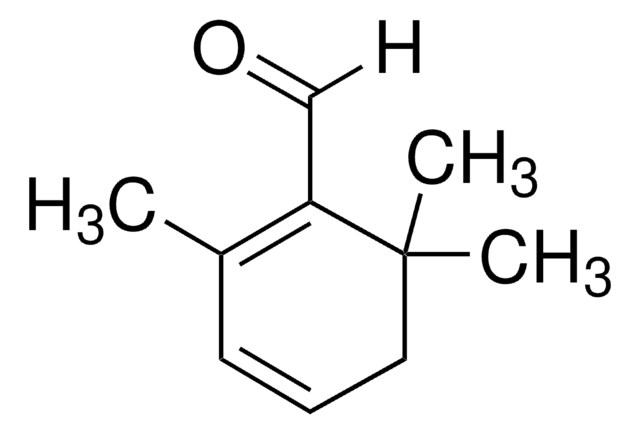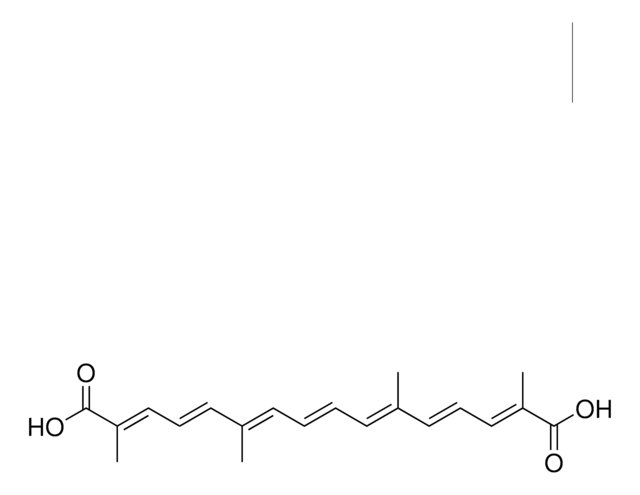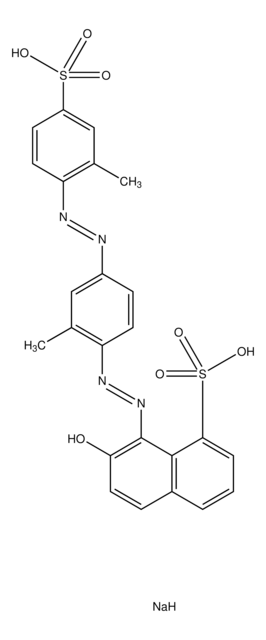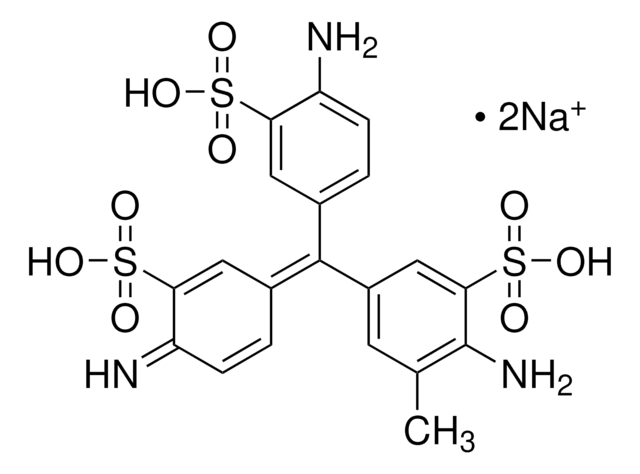S8381
Saffron
crude source of crocetin and crocein
Synonym(s):
Crocus sativus
Sign Into View Organizational & Contract Pricing
All Photos(2)
About This Item
UNSPSC Code:
12171500
NACRES:
NA.47
Recommended Products
Quality Level
application(s)
diagnostic assay manufacturing
hematology
histology
storage temp.
room temp
Related Categories
General description
Dried flower stigmas that may be used in a variety of histological staining procedures.
Application
Saffron has been used to develop an HPLC analytical protocol for the identification and quantification of the major components of saffron. It has also been used to study its cytotoxic effects.
Biochem/physiol Actions
Saffron is a crude source of the carotenoid antioxidants crocein and crocetin, as well as other carotenoids and monoterpene aldehydes. Saffron has been studied for use as an anticancer and chemopreventive agent and for its effects on antioxidant defense system pathways. A study in mice reported treatment with saffron reduced lipid peroxidation and caspase-3 activity, while increasing total brain antioxidant activity.
Storage Class Code
11 - Combustible Solids
WGK
WGK 3
Flash Point(F)
Not applicable
Flash Point(C)
Not applicable
Personal Protective Equipment
dust mask type N95 (US), Eyeshields, Gloves
Certificates of Analysis (COA)
Search for Certificates of Analysis (COA) by entering the products Lot/Batch Number. Lot and Batch Numbers can be found on a product’s label following the words ‘Lot’ or ‘Batch’.
Already Own This Product?
Find documentation for the products that you have recently purchased in the Document Library.
Customers Also Viewed
S Zahra Bathaie et al.
Critical reviews in food science and nutrition, 50(8), 761-786 (2010-09-11)
Saffron (Crocus sativus L.) has been an important subject of interest for research teams in the past two decades because of its various biological properties. Chemical analysis has shown the presence of more than 150 components in saffron stigmas. Here
HPLC quantification of major active components from 11
different saffron (Crocus sativus L.) sources
different saffron (Crocus sativus L.) sources
Heriberto Caballero-Ortega
Food Chemistry (2007)
Inhibitory Effect of Saffron (Crocus sativus L.) from Diferent
Countries
Countries
L. Riveron-Negrete
Laboratory Experiments in Organic Chemistry, 5th ed. null
Magdalini A Papandreou et al.
Behavioural brain research, 219(2), 197-204 (2011-01-18)
Brain aging is characterized by cognitive decline and memory deficits that could be the result of oxidative stress and impaired cholinergic function. In this study, the effects of a daily, 7-day, intraperitoneal administration of saffron on cognitive functions were examined
Biomedical properties of saffron and its potential use in cancer therapy and chemoprevention trials.
F I Abdullaev et al.
Cancer detection and prevention, 28(6), 426-432 (2004-12-08)
Chemoprevention strategies are very attractive and have earned serious consideration as potential means of controlling the incidence of cancer. An important element of anticancer drug development using plants is the accumulation and analysis of pertinent experimental data and purported ethnomedical
Our team of scientists has experience in all areas of research including Life Science, Material Science, Chemical Synthesis, Chromatography, Analytical and many others.
Contact Technical Service









